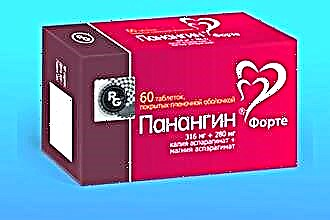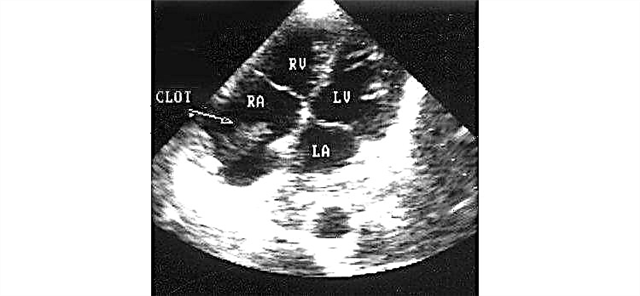We all know that sneezing is a sign of a cold. In some cases, the progression of the disease stops at this symptom, sometimes it continues to develop, provoking the appearance of other signs of a cold. A persistent runny nose and sneezing is a reason to see a doctor, because they can become a manifestation of chronic pathology, which increases the risk of serious complications.
 The reason for the appearance of rhinorrhea can be:
The reason for the appearance of rhinorrhea can be:
- colds of viral origin (ARVI);
- concomitant diseases, which are manifested by hypersecretion and swelling of the nasal mucosa (measles, chickenpox);
- allergic reactions.
Separately, it should be said about vasomotor rhinitis, which can appear due to:
- dysfunction of the autonomic separated by the NS;
- endocrine diseases associated with fluctuations in hormonal levels, including pregnancy;
- the presence of polyposis growths in the nose;
- allergic reactions;
- long-term use of nasal drops, which have a vasoconstrictor effect;
- inhaling cold, dusty air.
As a result of malfunctioning of the nervous system, the nasal mucosa reacts to external or internal factors in the form of swelling and increased mucus secretion. Irritation of receptors leads to itching and sneezing.
Only a doctor can establish the cause of rhinorrhea thanks to a complete examination. There are some differences between colds and allergies that help diagnose.
| Sign | Cold | Allergy |
|---|---|---|
| Cyclic symptoms | Colds appear at any time of the year | Differs in seasonality, therefore, a person, noticing the appearance of symptoms in a certain month of the year, may suspect an allergic reaction |
| Onset, symptoms | Symptoms may appear within a few days. Also worried about headache, malaise and sore throat. | A severe runny nose appears abruptly without symptoms of intoxication. Among the accompanying signs, it is worth highlighting lacrimation, itching of the eyes, nose, skin, rash, shortness of breath and cough. |
| Duration | Week, maximum 10 days | The duration depends on the allergen. If it is pollen or fluff, signs of allergy can be observed as long as the irritant is present, that is, 2-3 months. If the allergen is animal dander, personal care products or products, symptoms may occur periodically after contact with the provoking factor and disappear after removal of the allergen |
| Weather dependent | Changes in weather conditions do not significantly affect the course of a cold. | Strengthening the wind can provoke a deterioration in the condition, because fluff, pollen are carried very quickly, penetrating into living quarters. It is recommended to close the windows in windy weather. |
| Nasal discharge | Mucous, then thick. The color can be transparent, gradually acquiring a yellowish tint. | Usually watery discharge |
| Heredity | No connection traceable | Allergies are possible in relatives |
Many of us have noticed sneezing after inhaling a strong odor or polluted air. This is considered a protective reaction of the body to the action of a provoking factor. It is quite another matter when there is frequent sneezing and a runny nose.
Regardless of the symptoms, there is a risk of complications:
- bronchial asthma occurs due to constant contact with an allergen and a long-lasting allergic reaction;
- chronic rhinitis or sinusitis. The appearance of such complications is due to the presence of infection in the paranasal cavities due to an untreated acute infectious rhinitis.
Treatments for colds
When I often sneeze and run from my nose, the first thought that appears is a cold. To reduce the severity of rhinorrhea, most people buy vasoconstrictor drugs in the form of a spray or nasal drops at the pharmacy.
Note that vasoconstrictor drugs are not a treatment for rhinitis when it comes to monotherapy.
The action of drugs in this group is to narrow the blood vessels at the injection site, which leads to a decrease in mucosal edema and hypersecretion. The duration of the effect depends on the composition of the drug and can be 4-12 hours.
A nasal spray or drops are prescribed in a short course of up to 5 days, after which another drug is selected. This is necessary to prevent the development of addiction.
 Vasoconstrictor drugs are prescribed in combination with other medicines, which is a complete treatment for the common cold. From the side reactions of long-term use of nasal drops, dryness of the mucous membrane, the appearance of bloody crusts, which indicates damage to small vessels, can be distinguished.
Vasoconstrictor drugs are prescribed in combination with other medicines, which is a complete treatment for the common cold. From the side reactions of long-term use of nasal drops, dryness of the mucous membrane, the appearance of bloody crusts, which indicates damage to small vessels, can be distinguished.
Strong nasal flow can be reduced by:
- Ximelina, Xylo Mefa;
- Lazorin;
- Otrivin;
- Vibrocil;
- Evkazolin.
The minimum number of side effects is observed with Delufen. To facilitate breathing through the nose, it is enough to drop 1-2 drops into each nasal passage.
Complex treatment of the common cold includes the use of drugs to moisturize the nasal mucosa. They cleanse it of accumulations of mucus, allergens and dust particles, thereby reducing the severity of inflammation.
In the pharmacy, you can buy Aqua Maris, Humer, Salin or No-Sol. They can be used continuously for several months.
To maximize the effect of each drug, you must first rinse the nasal passages with saline, and then drip with medications.
If we are talking about an infectious rhinitis, in some cases the doctor prescribes nasal drops with an antibacterial effect (Izofra, Polidexa, Bioparox). The indication for their use is:
- hyperthermia up to 38.5 degrees;
- pain in the glabellar, paranasal area;
- discharge from the nose of a thick consistency with a greenish tinge;
- nasal congestion, nasal sound.
After establishing the nature of the disease (bacterial or viral), the doctor may prescribe antiviral (Groprinosin, Tsitovir, Remantadin) or antibacterial agents (Zinnat, Augmentin).
Allergic rhinitis therapy
A runny nose that appears after contact with an allergen requires an immediate start of treatment, because it is not always possible to predict the strength of the immune response to the action of a provoking factor.
To alleviate the condition and stop the development of an allergic reaction, antihistamines are prescribed in the form of tablets or suspensions. So, Suprastin, Tsetrin, Tsetrilev or Aleron can be used.
Local treatment consists in the appointment of nasal drops of various compositions:
- vasoconstrictors - Nazivin, Tizin, which are used in rare cases for emergency restoration of nasal breathing;
 antihistamines - Allergodil, Fenistil, Kromohexal. They have an effect not on the manifestations of allergy, but on its mechanism of development. The drug blocks the release of mediators, which inhibits the development of allergies. The duration of the course is 5 days or several months. Depending on the composition of the medicinal product, it can be used 1-2 times a day.
antihistamines - Allergodil, Fenistil, Kromohexal. They have an effect not on the manifestations of allergy, but on its mechanism of development. The drug blocks the release of mediators, which inhibits the development of allergies. The duration of the course is 5 days or several months. Depending on the composition of the medicinal product, it can be used 1-2 times a day.- hormonal - Avamis, Fluticasone, are used in severe cases when antihistamines do not have a sufficient effect. They are prescribed last, as they are addictive. After using hormonal medications, other remedies will be absolutely powerless;
- immunostimulating - Derinat, IRS-19, are prescribed to strengthen the local immune defense, preventing the addition of infection.
The choice of medicines depends on the stage of the process, the age of the patient, the presence of concomitant diseases and allergic reactions. With an allergic genesis of the disease, snot and sneezing will cease to bother only after eliminating the provoking factor.
After the exclusion of allergic and colds origin of the common cold, consultation of an endocrinologist, neurologist and other specialists is required. This is necessary to establish the cause of the disease and determine the treatment tactics.
Folk recipes
A runny nose and sneezing in the morning can be cured with folk remedies:
- rinsing the nose with saline solutions;
- inhalations with chamomile or essential oils;
- instillation of the nose with diluted onion juice (1: 1 with water) or aloe juice (1: 2 with water).
Medicines can only help if a person stops contacting the allergen, eats right, drinks enough and monitors the level of immunity.

 antihistamines - Allergodil, Fenistil, Kromohexal. They have an effect not on the manifestations of allergy, but on its mechanism of development. The drug blocks the release of mediators, which inhibits the development of allergies. The duration of the course is 5 days or several months. Depending on the composition of the medicinal product, it can be used 1-2 times a day.
antihistamines - Allergodil, Fenistil, Kromohexal. They have an effect not on the manifestations of allergy, but on its mechanism of development. The drug blocks the release of mediators, which inhibits the development of allergies. The duration of the course is 5 days or several months. Depending on the composition of the medicinal product, it can be used 1-2 times a day.

